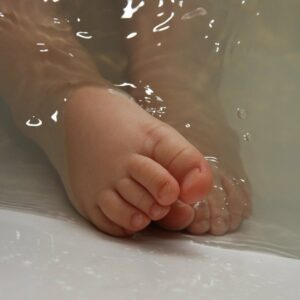Baby Teething Symptoms: How to Take Care of your Baby\’s First Teeth

Teething is one of the major milestones every baby crosses. When you see the first set of teeth pop, it makes you smile. Every parent is excited about that first set of teeth that show especially considering the troubles many babies go through to bring out that first set of teeth. Babies bring out their first teeth between 4 to 10 months. The teeth come out in twos with either the lower or upper front teeth also called the incisors being the first.
Baby Teething Signs
Different babies show different signs of teething. You have to carefully study your child to understand. Some of these signs can go on for as long as two months before the first teeth pop up. Below are signs that he is preparing to sprout his first teeth
- Your baby begins to drip saliva a lot
- Baby is biting on his finger almost every time.
- Your nipple becomes his biting buddy. He bites and draws the nipple frequently
- Some babies are restless and cry often only comforted with breastfeeding or a cold tether placed on the gum.
- The gum can become sore or tender when the teeth are about to spring out.
While some people believe teething is associated with diarrhea and fever, it hasn’t been proven to be true yet. What occurs is that the immunity is lowered during the time the teeth is about to sprout. This makes the baby prone to stomach infections and they can easily fall ill from the things they put in the mouth or what they are exposed to.
Ways to get through your baby teething stage
Many mothers, especially first-time moms worry that their baby is sucking and try to prevent the baby from sucking their hands. If your baby isn’t sucking his thumb then he isn’t sucking his fingers. He is only doing his best to soothe his itching gum.
- Acetaminophen or paracetamol would help deal with the discomfort or pain that comes from teething
- Place a cold tether or ice on the sore or itchy gum to soothe the gum
- Get many teething toys for your baby and keep them clean always.
- Allow your baby gnaw on your fingers. Make sure to keep your hands always clean.
- Occasionally massage his gum with your fingers or washcloths kept in the freezer.
Taking care of your baby’s teeth
You and your baby have gone through the troubles of bringing out the first teeth. This is great. You now have to ensure your baby’s teeth and oral health is great. Keep in mind that if you don’t take care of your baby’s teeth, he or she could develop tooth decay otherwise known as dental caries. How do you maintain good oral hygiene for your baby?
- Book a visit to the dentist for your baby as soon as you see your baby’s first teeth
- Clean the gum with a soft clean cloth and warm water.
- As the teeth grow, switch to toothbrush with soft bristles and a pea size fluoride toothpaste.
- Constantly check for signs of tooth decay. A white or brown patch on the teeth. If there are any concerns, make sure to talk to the dentist







